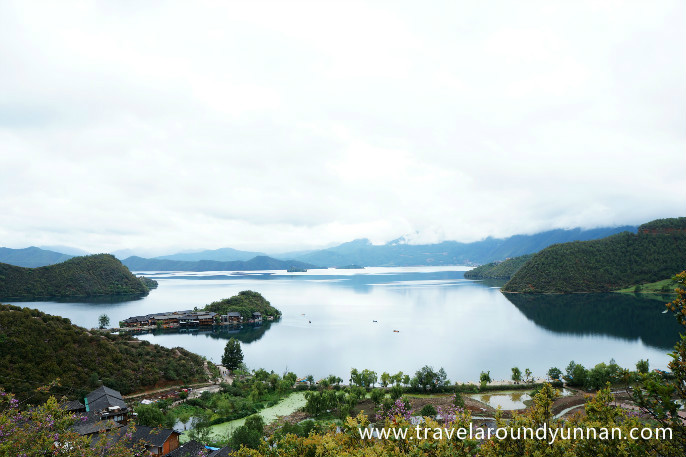
Lugu Lake in Lijiang
Lugu lake is supposedly home to the only matriarchal society left on Earth. This unique civilization is based around the banks and beaches of the lake, a spectacular alpine body of water which straddles the Sichuan and Yunnan border in southwest China. Sitting at an altitude of 2,685 meters, it is officially the highest lake in Yunnan province.
Alongside the attractive Lugu Lake, the matrilineal society of Mosuo people is unique and the custom of “walking marriage” is mysterious to the outside world. Since 1997 when Lijiang Old Town was listed as a world cultural heritage site by UNESCO, Lijiang has enjoyed an increasingly broad fame.
The inhabitants around the lake are the Mosuo people, a small tribe that is considered a sub clan of Naxi people. They are a matriarchal society and seek to maintain that heritage.The Mosuo currently do not have a written language. A walking tour around the lake (a popular activity for backpackers) takes about three days, through some incredibly beautiful scenery, and gives you a chance to visit many local communities.
There are many villages scattered around the lake, with the best-known villages being Luoshui and Lige, which are the main tourist centers of the area. Many people, when they talk about the Mosuo, talk about Lugu Lake, as if this is the center of Mosuo culture. However, that is not really the case.
By far the majority of Mosuo do not live at the lake, but in towns/villages scattered throughout the mountains surrounding the lake. And Luoshui is really about as far from “typical Mosuo” as you can get; rather, it has become a fairly typical tourist trap, presenting an image tailored to tourist desires and sensibilities. While it is a truly beautiful place to visit, if you want to see/experience “real” Mosuo culture, you've got to get away from these tourist areas.
The real “center” of Mosuo culture, if one exists, would be Yongning. Commonly considered the Mosuo capital, it is home to the largest Mosuo Tibetan monastery, and is a center of Mosuo religion and culture.